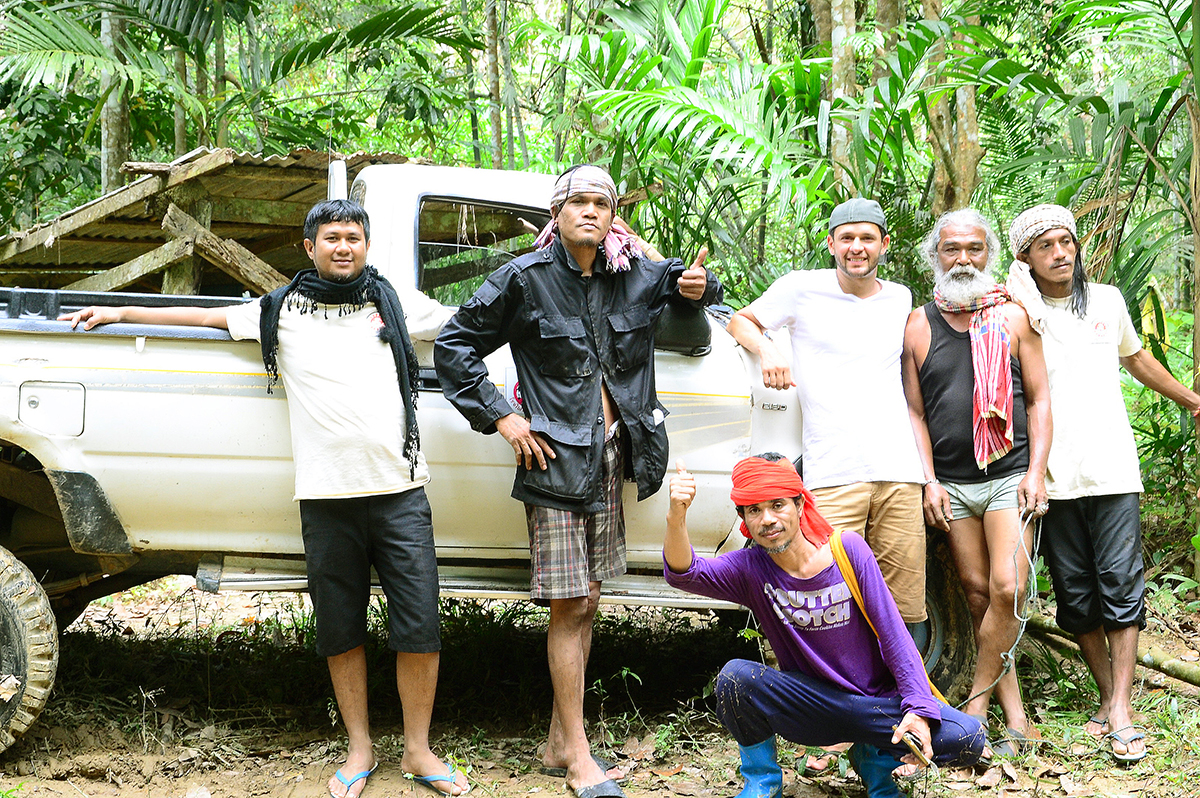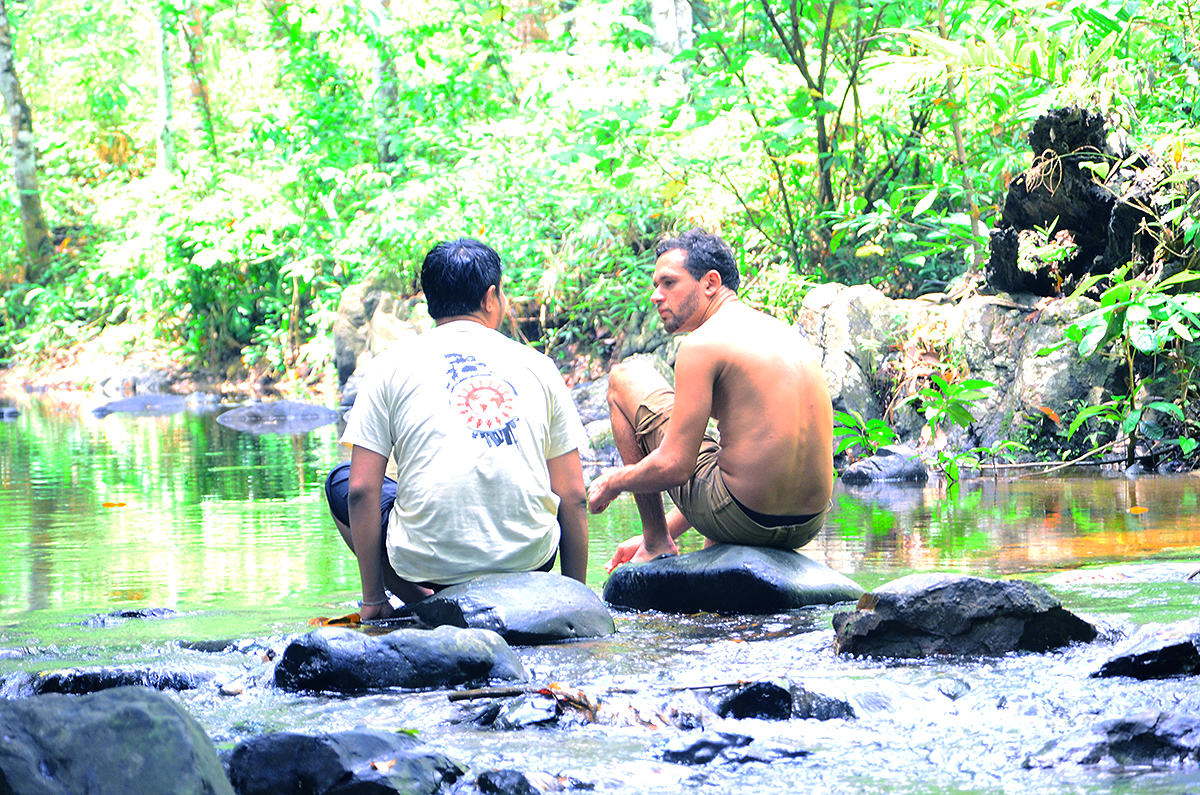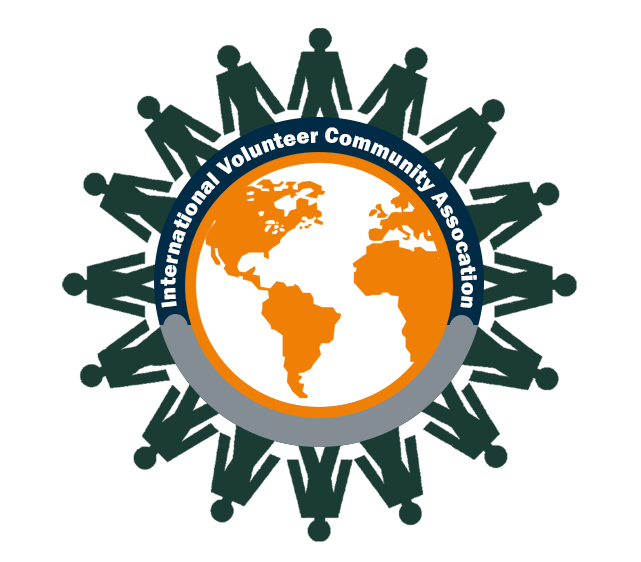What is going on?
The Phadam Forest is a protected rainforest located in the Songkhla province and rests against the Banthat Mountain Range. Thai people used to live nearby as a source of water, food and medicine. The most important source is the freshwater. However, during the last century the forest has lost up to 30% of its area. This deforestation occurred because of the following economic incentives:
- Illegal logging: a local Lumpoh tree can deliver up to $10,000 USD, which is about 30 times a local monthly salary.
- Bribery: a culture of corruption among government officials has allowed local electricity companies to remove a vast amount of trees; because installation costs are less than around the forested area.
- Rubber trade: trees are logged legally in favor of sparse rubber tree plantations.
Besides the effect of reduced carbon dioxide capture from the air, less water being is retained in the soil, leading to floods and displacement of local peoples. For example, in 2007, the Thai government declared the whole Songkhla province as a flood disaster area. Since the rubber plantations have trees about 5 meter apart from each other, native animals have lost their habitats as well.
IVCA aims to create both local and global awareness of these problems. Local awareness is given to children at schools, with the hope that the future generation will be active against deforestation. Meanwhile, IVCA organizes an all-in experience for international volunteers to boost and spread the thought process on forest conservation. An insight is given to the volunteer on how tree planting works while learning about the forest and enjoying its beauty. The conservation project of IVCA will serve as an example for protecting rainforests all around the world.

Volunteer Experience
During my travels in Southern Thailand I was amazed by
its beauty and read that it is mainly thanks to the shallow water which has made it unattractive to build shipping ports. During my last week of traveling, I was happy to be accepted as a volunteer at IVCA, where I could teach kids on global warming and learn about forest conservation. My stay at the Phadam camp was very interesting and I had a view of the Khlong Cham Rai Lake, which was amazing. The friendly and open-minded local people that stayed with me made me feel at home. Delicious Thai food was prepared daily with fresh ingredients and additional fresh fish from the lake, if the catch of that day allowed. Kayaking on the lake was very peaceful; a stark contrast to busy city life.
For the tree planting, I first filled about 120 small bags with soil wherein the seedlings were to be planted. Seedlings are very young trees of max 1 meter height. They are usually found near fully grown trees of the same sort. The seedlings were collected in the jungle closer to the mountain range. We went there by pickup truck where we had to cross rivers through narrow paths. Due to the ruggedness the truck tilted so much that it almost fell over. Upon arrival, we collected the seedlings with the help of a local guide who has visited the jungle for 11 years. Specific tree sorts were picked: Lumpoh, Takiah and Pa-yom.

We had to walk through the lush vegetation, full of mosquitoes, centipedes and leeches. It is quite an experience to remove a leech that is busy sucking your blood. Back in the camp, seedlings of other sorts were collecte – mainly Samsao, Waa pronounced from high to low in Thai. Then, the seedlings were planted in the small soil bags to be prepared for the school camp’s children at the end of the month.
Volunteer: Amir Seddik is an environmental enthusiast, chemist from education, and works professionally as a data scientist.
IVCA President: Nuanwilai Malagor (Gor)
IVCA Coordinator: Becky Graves

2 Comments. Leave new
Great experience. Needs to be published in a sustainability magazine to support continuation.
Please help us to promote our conservation project.